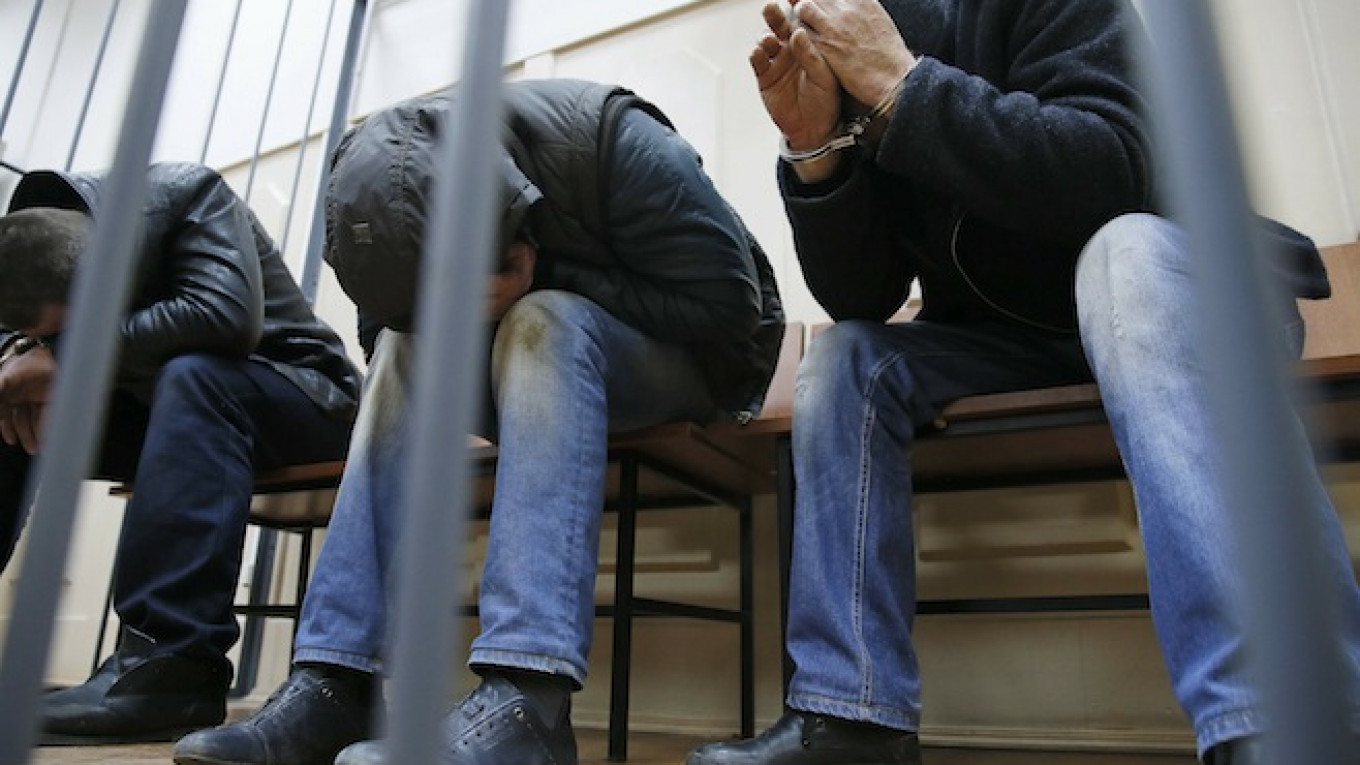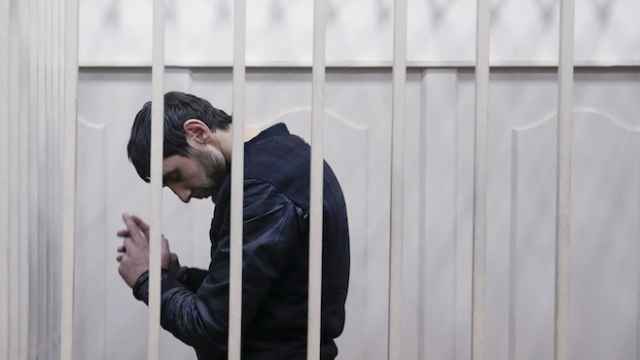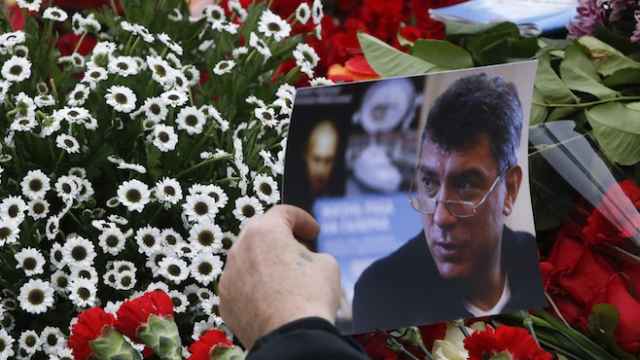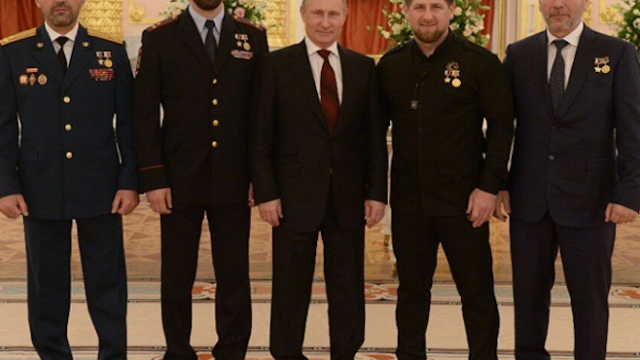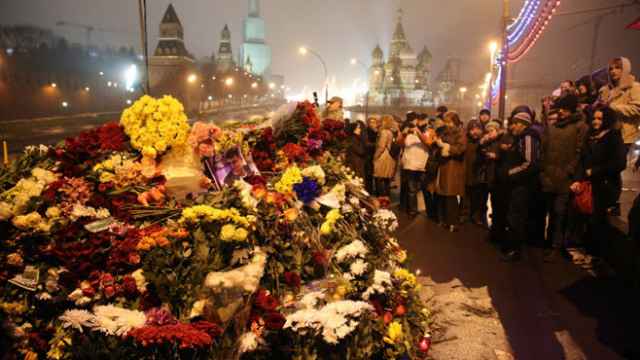Three suspects in the killing of Russian opposition leader Boris Nemtsov have probably been tortured while in detention, a member of the Kremlin's advisory council on human rights said Wednesday.
After visiting three of the five ethnic Chechen suspects at Moscow's Lefortovo prison as part of a monitoring group, rights activist Andrei Babushkin said the men detained over the Feb. 27 murder had suffered multiple injuries.
Nemtsov was the most prominent of a string of Kremlin critics to be killed during President Vladimir Putin's 15-year rule. The brazen shooting in the heart of Moscow has shocked his colleagues and supporters, who say the investigation is a test of the rule of law in Russia.
A Russian judge has said former Chechen policeman Zaur Dadayev, who is being held along with his cousins, Anzor and Shagid Gubashev, has admitted involvement in the murder. Dadayev and Anzor Gubashev have been formally charged.
"There are reasonable grounds to believe that Dadayev and the Gubashevs were tortured," Babushkin wrote on his website.
He said Dadayev had "multiple injuries" visible on his body, while Anzor Gubashev had abrasions around his nose, wrists and legs that were incurred after he was detained.
In a conversation with Babushkin, Dadayev said he had only admitted his guilt after being promised that the authorities would then free his friend Rustam Yusupov, who was detained at the same time.
"They said if I confess, they would let him out. I agreed. I thought that I would save him and they would take me to Moscow alive," he said according to a transcript published in Moskovsky Komsomolets newspaper, whose reporter was present during the visit.
Babushkin said Yusupov had since disappeared.
When Anzor Gubashev was asked where he had received bruises and wounds on his wrists and legs, he said he was beaten, according to the newspaper's transcript.
"Were the beatings recorded when you arrived in prison?"
"Yes," Gubashev responded.
His brother Shagid said that he had been beaten by two law enforcement officers who called one another Mikhailovich and Petrovich.
Russia's Investigative Committee, in charge of the Nemtsov case, said that questions posed by Babushkin and the journalist were an attempt to obstruct its work. It said both would be called in for questioning over their actions.
Babushkin called on the Kremlin's human rights council to inform Putin of his findings and said law enforcement agencies should investigate the torture allegations.
Aides to Nemtsov, a former deputy prime minister, suspect Russia's state security apparatus is complicit in the killing. They are scornful of the investigation and say blaming Chechen Islamists is aimed at deflecting suspicion from Putin, his inner circle or the security services.
Putin has condemned the shooting and promised to bring the perpetrators to justice.
The head of the watchdog group with which Babushkin made his visit to Lefortovo prison said he was unable to confirm the allegations of torture after speaking to the prisoners and reviewing their medical records, the Interfax news agency reported.
Moskovsky Komsomolets also published pictures of the white getaway car allegedly used by the suspects after Nemtsov was shot four times in the back.
Russian investigators said last week they were looking into the possibility that Islamists had shot Nemtsov for defending cartoons of the prophet Muhammad in French satirical magazine Charlie Hebdo after Islamist gunmen killed 12 people in an attack on its offices on Jan. 7.
But the newspaper said the car had been seen outside Nemtsov's house as early as last year, which would undermine the theory of a link to the Charlie Hebdo attack.
A Message from The Moscow Times:
Dear readers,
We are facing unprecedented challenges. Russia's Prosecutor General's Office has designated The Moscow Times as an "undesirable" organization, criminalizing our work and putting our staff at risk of prosecution. This follows our earlier unjust labeling as a "foreign agent."
These actions are direct attempts to silence independent journalism in Russia. The authorities claim our work "discredits the decisions of the Russian leadership." We see things differently: we strive to provide accurate, unbiased reporting on Russia.
We, the journalists of The Moscow Times, refuse to be silenced. But to continue our work, we need your help.
Your support, no matter how small, makes a world of difference. If you can, please support us monthly starting from just $2. It's quick to set up, and every contribution makes a significant impact.
By supporting The Moscow Times, you're defending open, independent journalism in the face of repression. Thank you for standing with us.
Remind me later.


